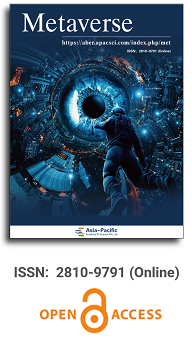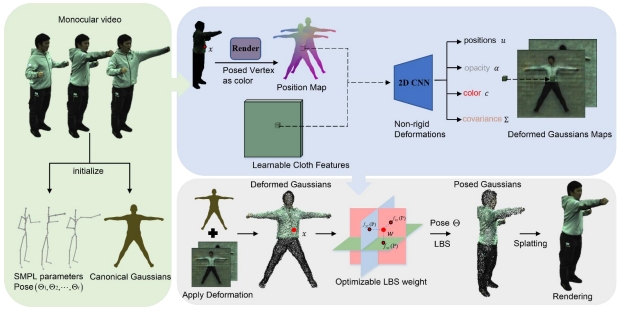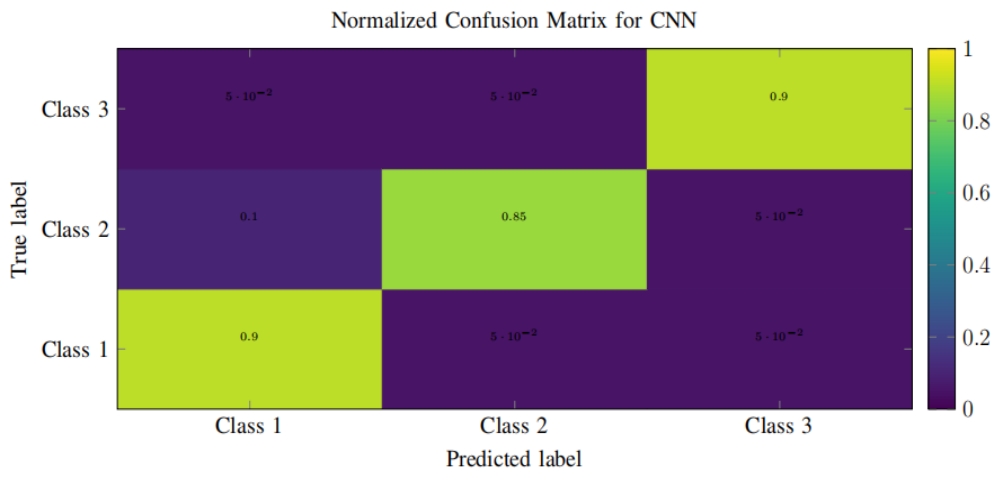
Asia Pacific Academy of Science Pte. Ltd. (APACSCI) specializes in international journal publishing. APACSCI adopts the open access publishing model and provides an important communication bridge for academic groups whose interest fields include engineering, technology, medicine, computer, mathematics, agriculture and forestry, and environment.



The role of humans in the future of medicine: Completing the cycle
Vol 6, Issue 1, 2025
Download PDF
Abstract
The progression of Artificial Intelligence (AI) has reshaped our understanding of intelligence, consciousness, and the human condition, challenging long-held assumptions about the mind and its relationship with machines. Starting with Alan Turing’s Imitation Game, the narrative of assessment of AI has continually evolved. This historical context underlines the importance of moving beyond mere facts to confront philosophical questions about AI’s role and limitations, especially in its capacity for consciousness and emotional resonance. In healthcare, the evolution of AI reflects a transformative cycle. Historically, medicine began as an empathic endeavor, where caregivers provided comfort amid limited knowledge. Over centuries, advancements in science elevated physicians to authoritative figures, creating a paternalistic doctor-patient dynamic. Today, with the advent of AI and technologies like the metaverse, healthcare knowledge is becoming democratized. Patients can increasingly access AI-driven diagnostics and interactions, creating a potential era of “algorithmic paternalism” where machines dominate the knowledge hierarchy. Looking to the future, as AI assumes cognitive and diagnostic responsibilities, the human aspect of medicine will gain renewed importance. Physicians will return to their foundational role as empathic caregivers, focusing on human connection and emotional support—qualities that AI, despite its advances, cannot fully replicate today. This shift completes a historical cycle, reaffirming the enduring value of humanity in medicine and positioning the physician as a central figure in the emotionally nuanced landscape of healthcare.
Keywords
References
- Turing AM. I.—Computing Machinery And Intelligence. Mind. 1950; LIX(236): 433–460. doi: 10.1093/mind/lix.236.433
- Jefferson G. The Mind of Mechanical Man. BMJ. 1949; 1(4616): 1105–1110. doi: 10.1136/bmj.1.4616.1105
- Swash M, Evans J. Hughlings Jackson’s clinical research: evidence from contemporary documents. Neurology. 2006; 67(4): 666–672. doi: 10.1212/01.wnl.0000230142.89488.a0
- Aminololama-Shakeri S, López JE. The Doctor-Patient Relationship With Artificial Intelligence. American Journal of Roentgenology. 2019; 212(2): 308–310. doi: 10.2214/ajr.18.20509
- Wang Y, Li C, Qu L, et al. Application and challenges of a metaverse in medicine. Frontiers in Robotics and AI. 2023; 10. doi: 10.3389/frobt.2023.1291199
- Massetti M, Chiariello GA. The metaverse in medicine. European Heart Journal Supplements. 2023; 25(Supplement_B): B104–B107. doi: 10.1093/eurheartjsupp/suad083
- Chilamkurthy S, Ghosh R, Tanamala S, et al. Deep learning algorithms for detection of critical findings in head CT scans: a retrospective study. Lancet Lond Engl. 2018; 392(10162): 2388–2396.
- Reddy S. Generative AI in healthcare: an implementation science informed translational path on application, integration and governance. Implementation Science. 2024; 19(1): 27. doi: 10.1186/s13012-024-01357-9
- Antel R, Abbasgholizadeh-Rahimi S, Guadagno E, et al. The use of artificial intelligence and virtual reality in doctor-patient risk communication: A scoping review. Patient Education and Counseling. 2022; 105(10): 3038–3050. doi: 10.1016/j.pec.2022.06.006
- Howell MD, Corrado GS, DeSalvo KB. Three Epochs of Artificial Intelligence in Health Care. JAMA. 2024; 331(3): 242. doi: 10.1001/jama.2023.25057
- Vearrier L, Derse AR, Basford JB, et al. Artificial Intelligence in Emergency Medicine: Benefits, Risks, and Recommendations. The Journal of Emergency Medicine. 2022; 62(4): 492–499. doi: 10.1016/j.jemermed.2022.01.001
- Kenig N, Echeverria JM, Vives AM. Artificial Intelligence in Surgery: A Systematic Review of Use and Validation. Journal of Clinical Medicine. 2024; 13(23): 7108. doi: 10.3390/jcm13237108
- Kawarase MA, Anjankar A. Dynamics of Metaverse and Medicine: A Review Article. Cureus. 2022; 14(11): e31232. doi: 10.7759/cureus.31232
- Lorenzini G, Ossa LA, Shaw DM, Elger BS. Artificial intelligence and the doctor–patient relationship expanding the paradigm of shared decision making. Bioethics. 2023; 37(5): 424–429. doi: 10.1111/bioe.13158
- Allen MR, Webb S, Mandvi A, et al. Navigating the doctor-patient-AI relationship—a mixed-methods study of physician attitudes toward artificial intelligence in primary care. BMC Primary Care. 2024; 25(1): 42. doi: 10.1186/s12875-024-02282-y
- Sauerbrei A, Kerasidou A, Lucivero F, et al. The impact of artificial intelligence on the person-centred, doctor-patient relationship: some problems and solutions. BMC Medical Informatics and Decision Making. 2023; 23(1): 73. doi: 10.1186/s12911-023-02162-y
- Topol EJ. High-performance medicine: the convergence of human and artificial intelligence. Nature Medicine. 2019; 25(1): 44–56. doi: 10.1038/s41591-018-0300-7
- Reddy S, Rogers W, Makinen VP, et al. Evaluation framework to guide implementation of AI systems into healthcare settings. BMJ Health & Care Informatics. 2021; 28(1): e100444. doi: 10.1136/bmjhci-2021-100444
- Rivera SC, Liu X, Chan AW, et al. Guidelines for clinical trial protocols for interventions involving artificial intelligence: the SPIRIT-AI Extension. Lancet Digit Health. 2020; 2(10): e549–560.
- Muller H, Mayrhofer MT, Van Veen EB, Holzinger A. The Ten Commandments of Ethical Medical AI. Computer. 2021; 54(7): 119–123. doi: 10.1109/mc.2021.3074263
- Kenig N, Echeverria JM, Rubi C. Ethics for AI in Plastic Surgery: Guidelines and Review. Aesthetic Plastic Surgery. 2024; 48(11): 2204–2209. doi: 10.1007/s00266-024-03932-3
- Kenig N, Echeverria JM, Vives AM. Human Beauty according to Artificial Intelligence. Plastic and Reconstructive Surgery—Global Open. 2023; 11(7): e5153. doi: 10.1097/gox.0000000000005153
- Jacoba CMP, Celi LA, Lorch AC, et al. Bias and Non-Diversity of Big Data in Artificial Intelligence: Focus on Retinal Diseases. Seminars in Ophthalmology. 2023; 38(5): 433–441. doi: 10.1080/08820538.2023.2168486
- Council of Europe Steering Committee for Human Rights in the fields of Biomedicine and Health (CDBIO). Report On The Impact Of Artificial Intelligence On The Doctor-Patient Relationship. Available online: https://rm.coe.int/inf-2022-5-report-impact-of-ai-on-doctor-patient-relations-e/1680a68859 (accessed on 22 November 2024).
- Riedl R, Hogeterp SA, Reuter M. Do patients prefer a human doctor, artificial intelligence, or a blend, and is this preference dependent on medical discipline? Empirical evidence and implications for medical practice. Frontiers in Psychology. 2024; 15. doi: 10.3389/fpsyg.2024.1422177
- World Health Organization. Ethics and Governance of Artificial Intelligence for Health: WHO Guidance, 1st ed. World Health Organization; 2021. p. 1.
- Bjerring JC, Busch J. Artificial Intelligence and Patient-Centered Decision-Making. Philosophy & Technology. 2020; 34(2): 349–371. doi: 10.1007/s13347-019-00391-6
- Magrabi F, Ammenwerth E, McNair JB, et al. Artificial Intelligence in Clinical Decision Support: Challenges for Evaluating AI and Practical Implications. Yearbook of Medical Informatics. 2019; 28(01): 128–134. doi: 10.1055/s-0039-1677903
- Coiera E. The fate of medicine in the time of AI. Lancet Lond Engl. 2018; 392(10162): 2331–2332.
- Hughlings-Jackson J. Observations on the Physiology and Pathology of Hemi-Chorea. Edinb Med J. 1868; 14(4): 294–303.
- Gregory J. Understanding the communication skills that support nurses to provide person-centred care. Nursing Standard. 2024; 39(2): 61–66. doi: 10.7748/ns.2024.e12132
- Sany SBT, Behzhad F, Ferns G, et al. Communication skills training for physicians improves health literacy and medical outcomes among patients with hypertension: a randomized controlled trial. BMC Health Services Research. 2020; 20(1): 60. doi: 10.1186/s12913-020-4901-8
- Hashim MJ. Patient-Centered Communication: Basic Skills. Am Fam Physician. 2017; 95(1): 29–34.
Supporting Agencies
Copyright (c) 2025 Nitzan Kenig, Aina Muntaner Vives
License URL: https://creativecommons.org/licenses/by/4.0/

This site is licensed under a Creative Commons Attribution 4.0 International License (CC BY 4.0).

Prof. Zhigeng Pan
Professor, Hangzhou International Innovation Institute (H3I), Beihang University, China

Prof. Jianrong Tan
Academician, Chinese Academy of Engineering, China
Conference Time
December 15-18, 2025
Conference Venue
Hong Kong Convention and Exhibition Center (HKCEC)
...
Metaverse Scientist Forum No.3 was successfully held on April 22, 2025, from 19:00 to 20:30 (Beijing Time)...
We received the Scopus notification on April 19th, confirming that the journal has been successfully indexed by Scopus...
We are pleased to announce that we have updated the requirements for manuscript figures in the submission guidelines. Manuscripts submitted after April 15, 2025 are required to strictly adhere to the change. These updates are aimed at ensuring the highest quality of visual content in our publications and enhancing the overall readability and impact of your research. For more details, please find it in sumissions...






.jpg)
.jpg)

